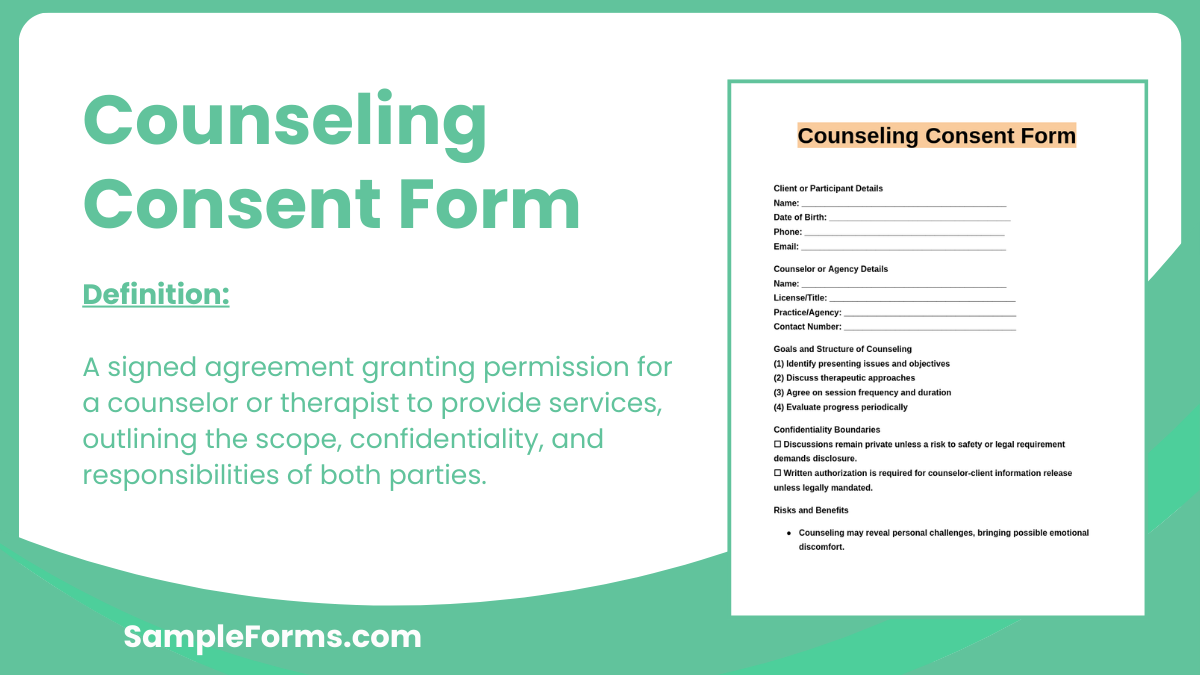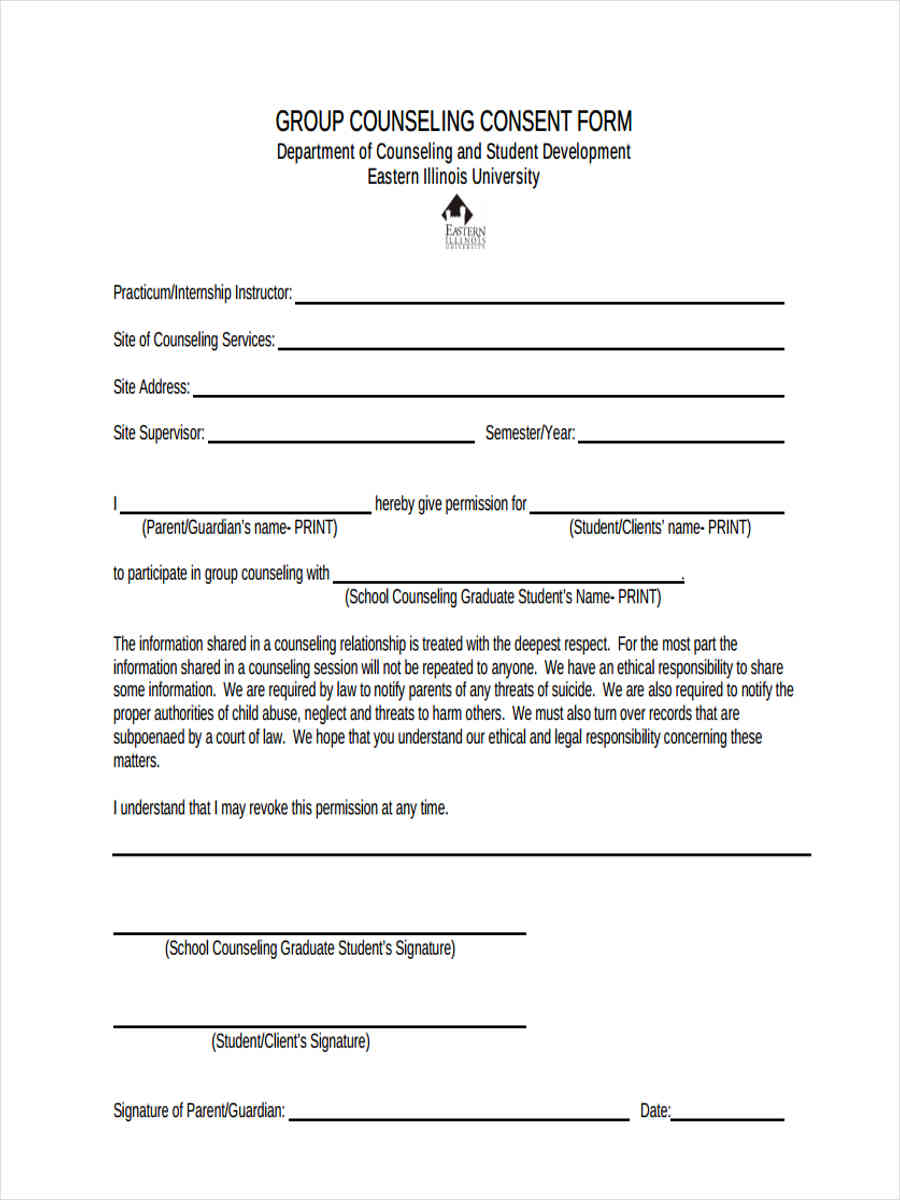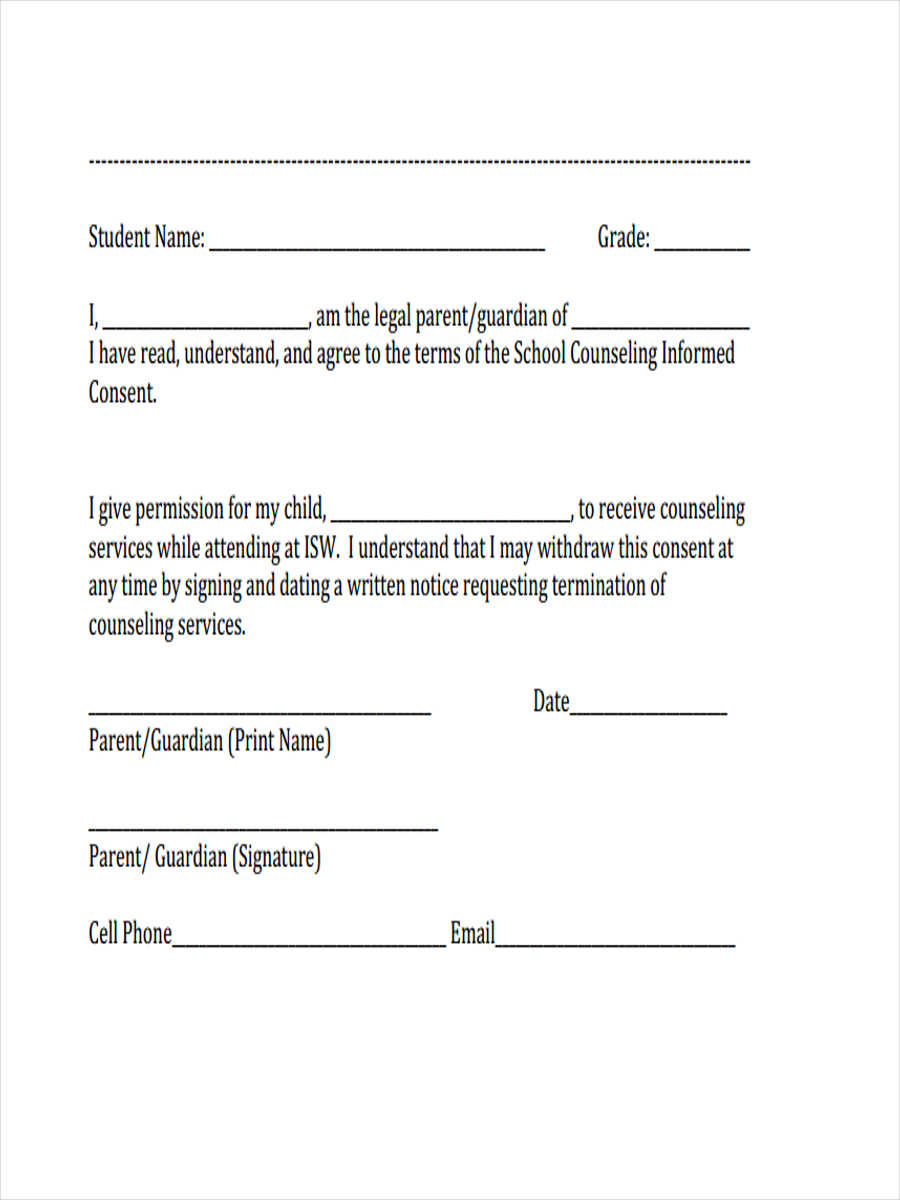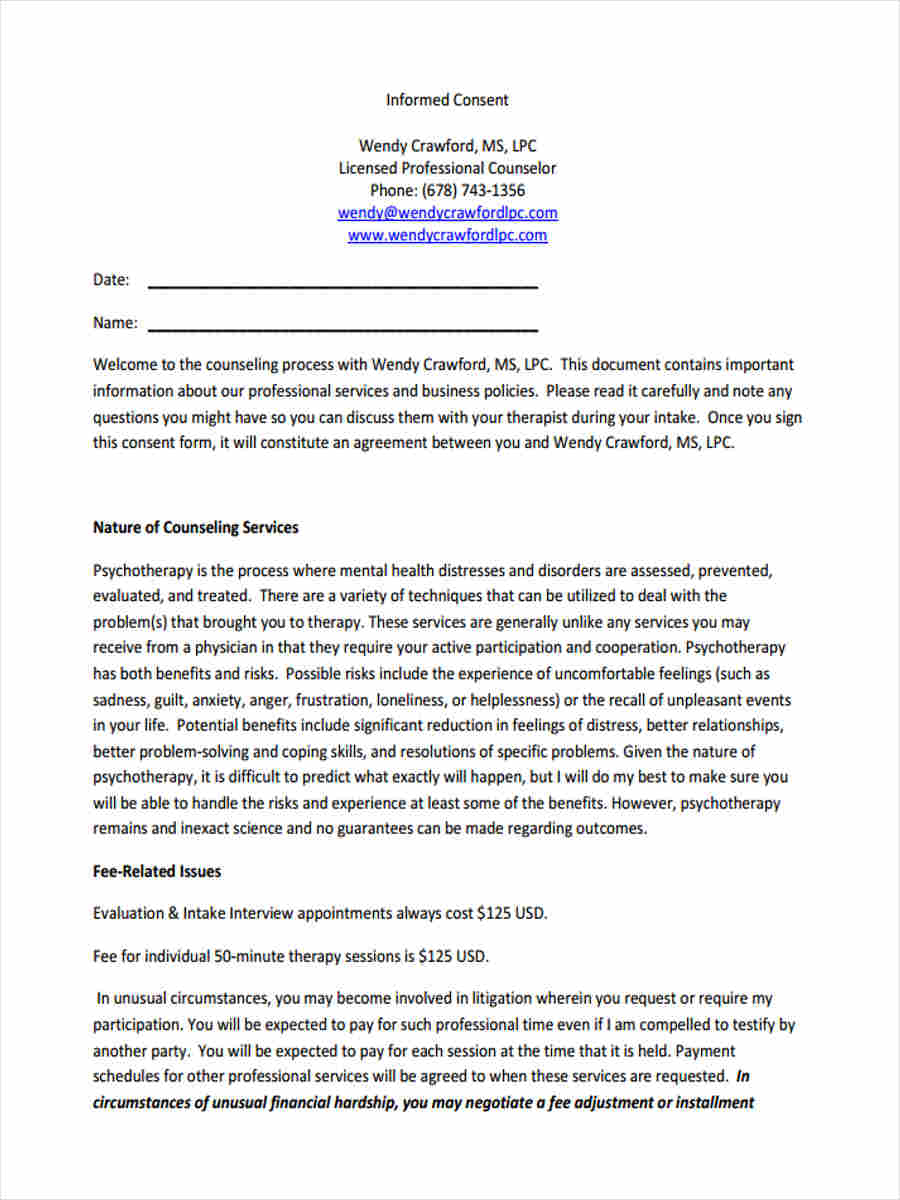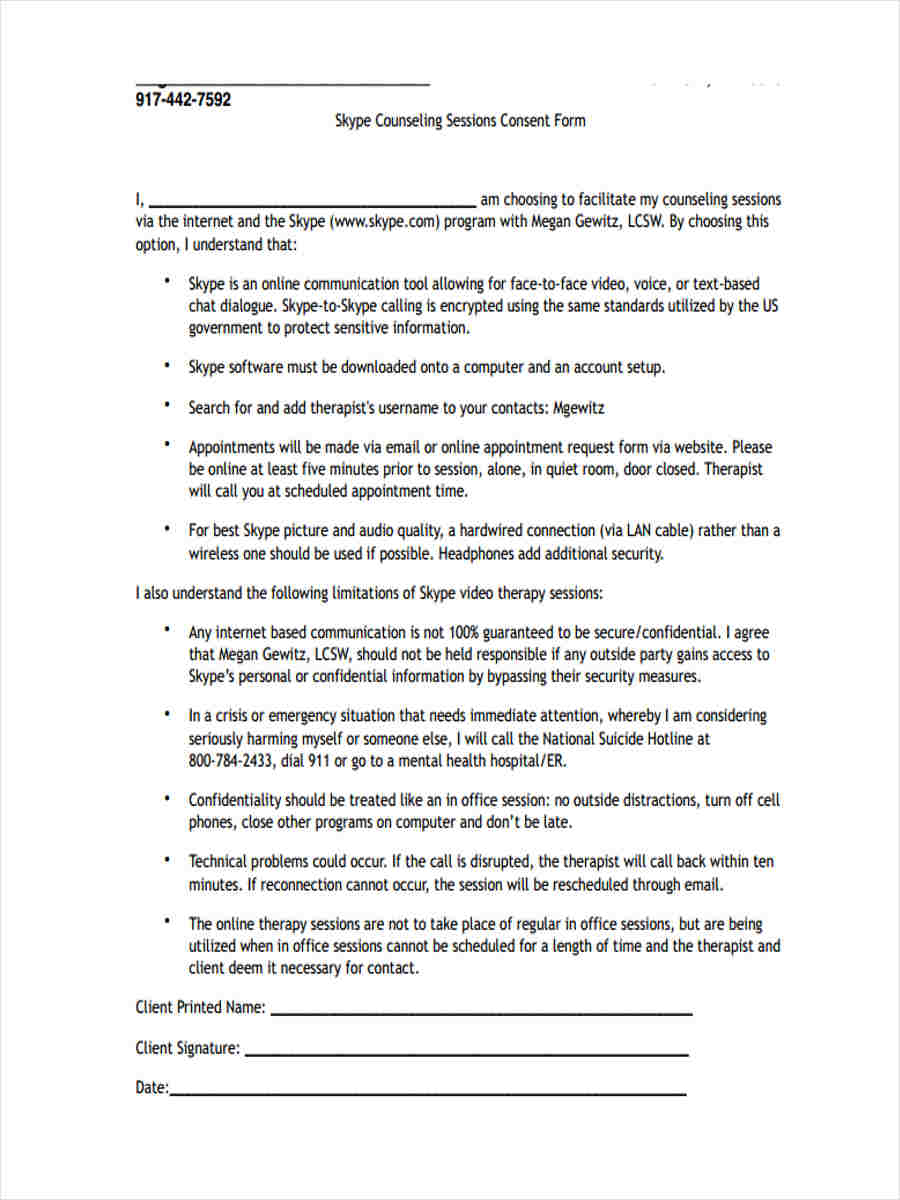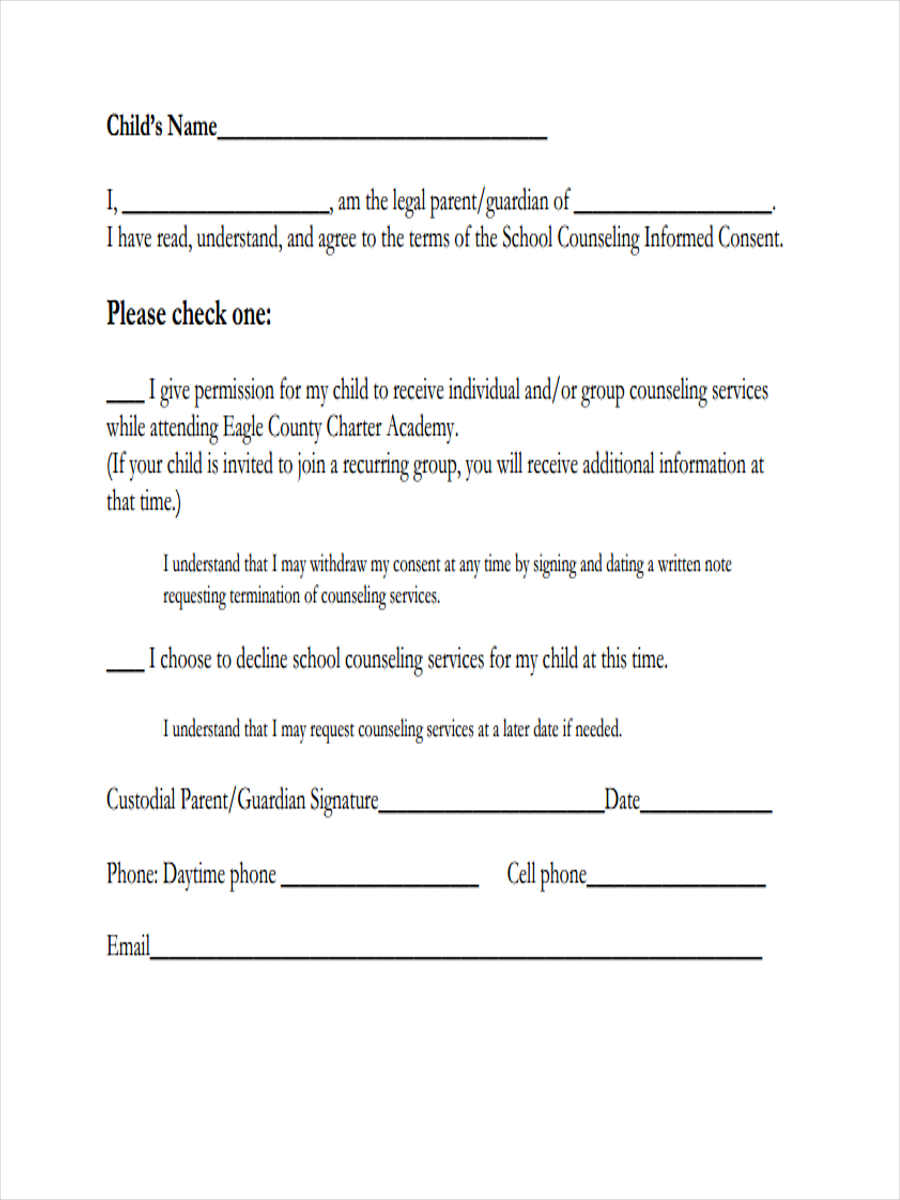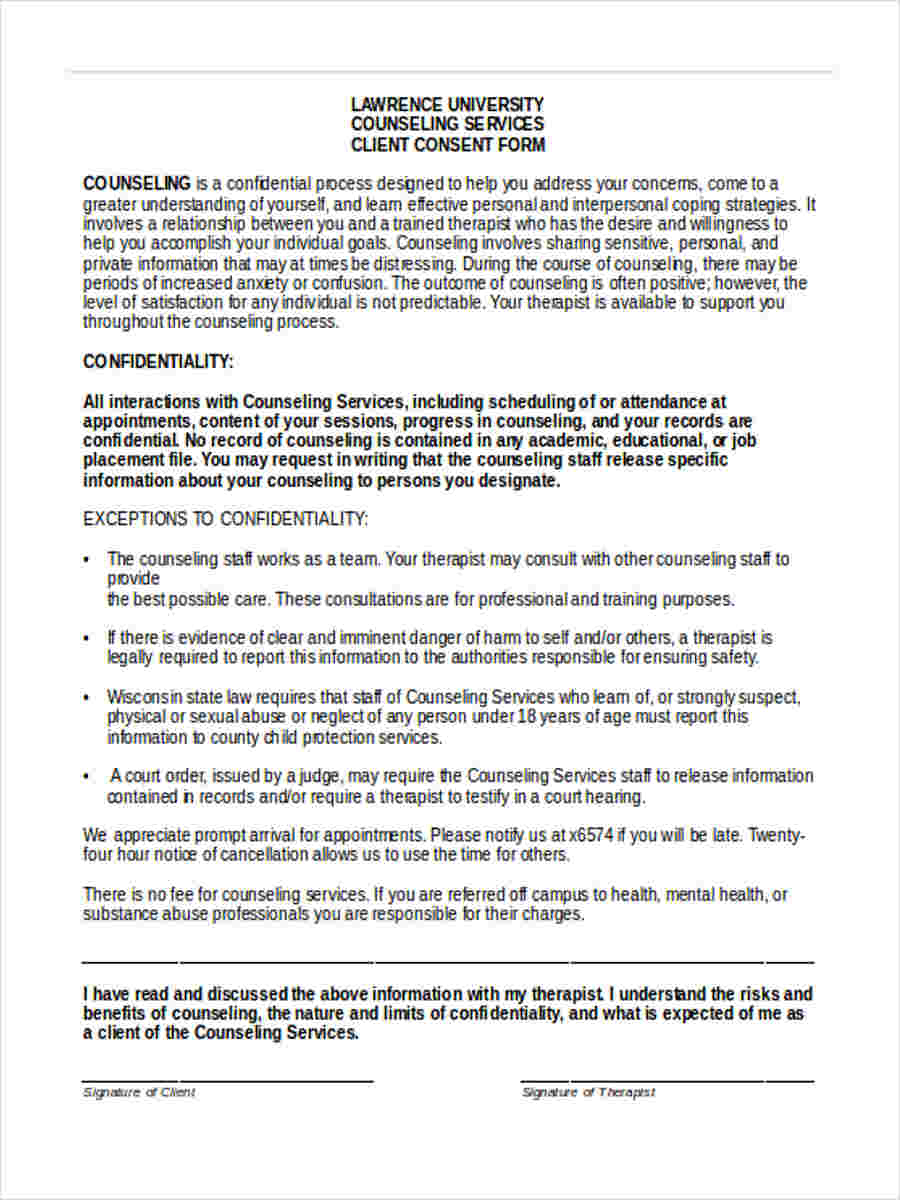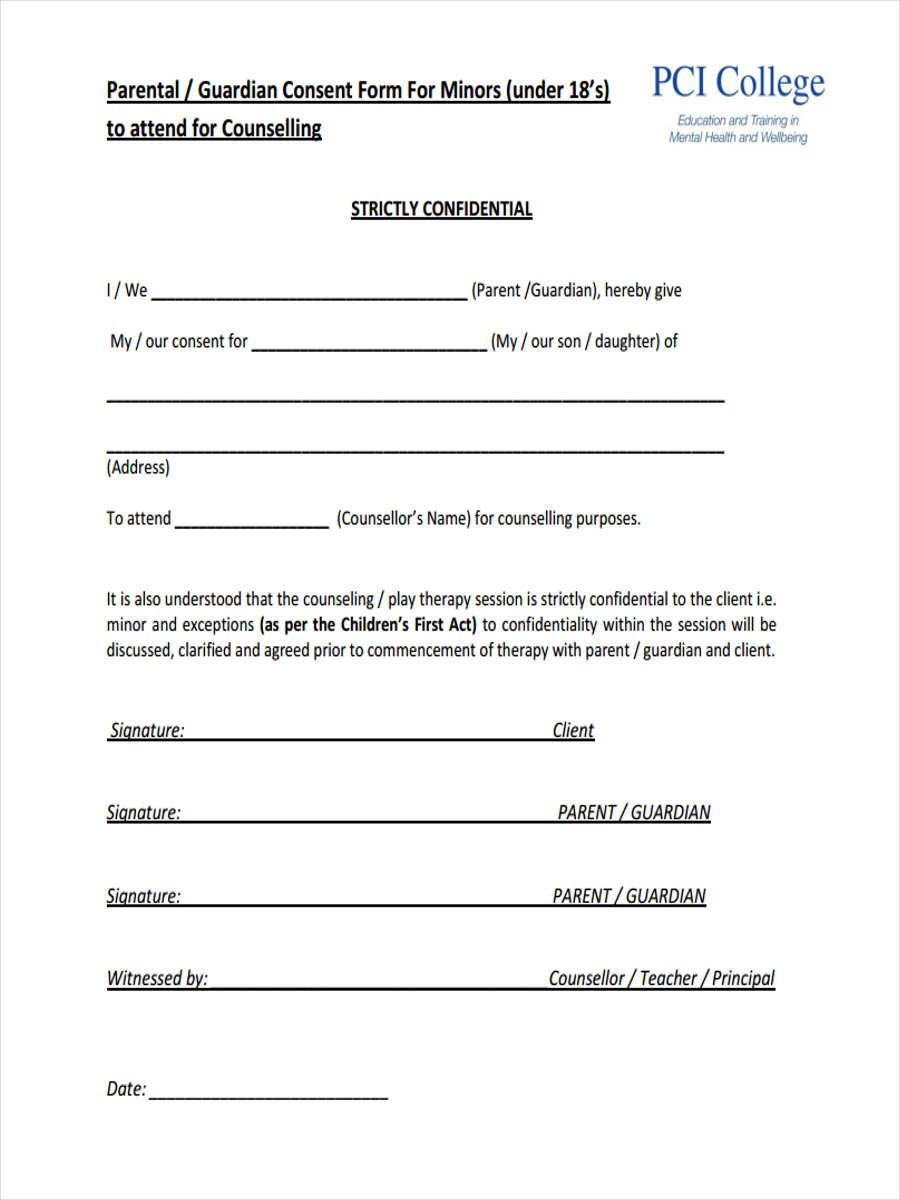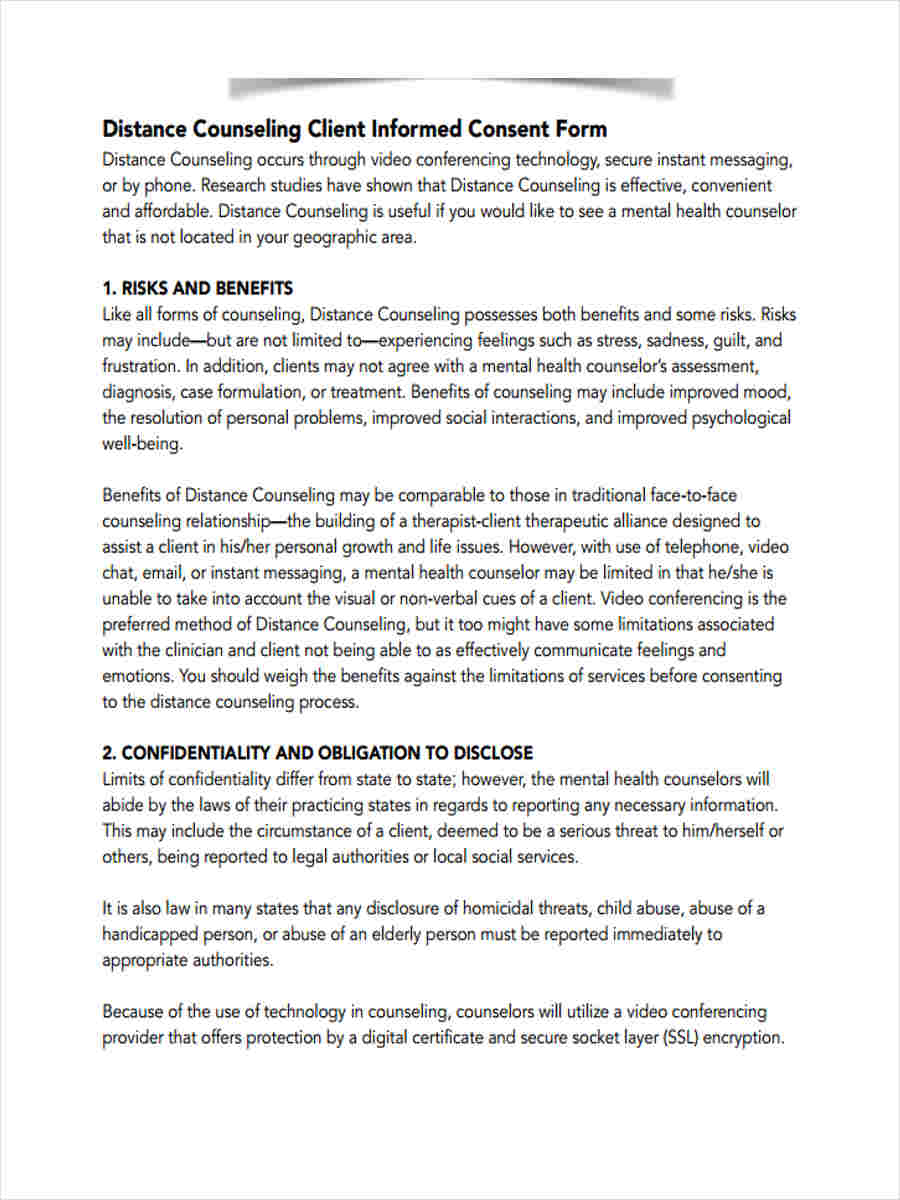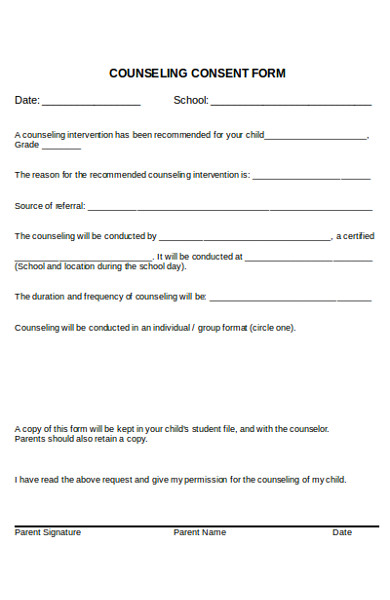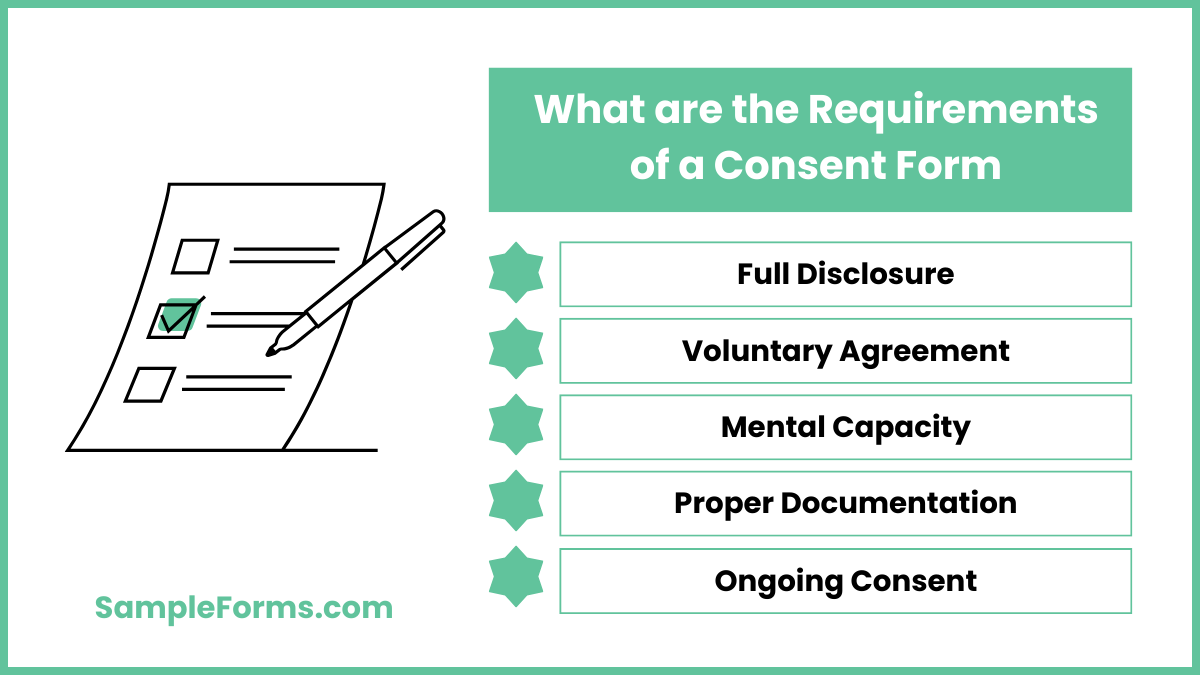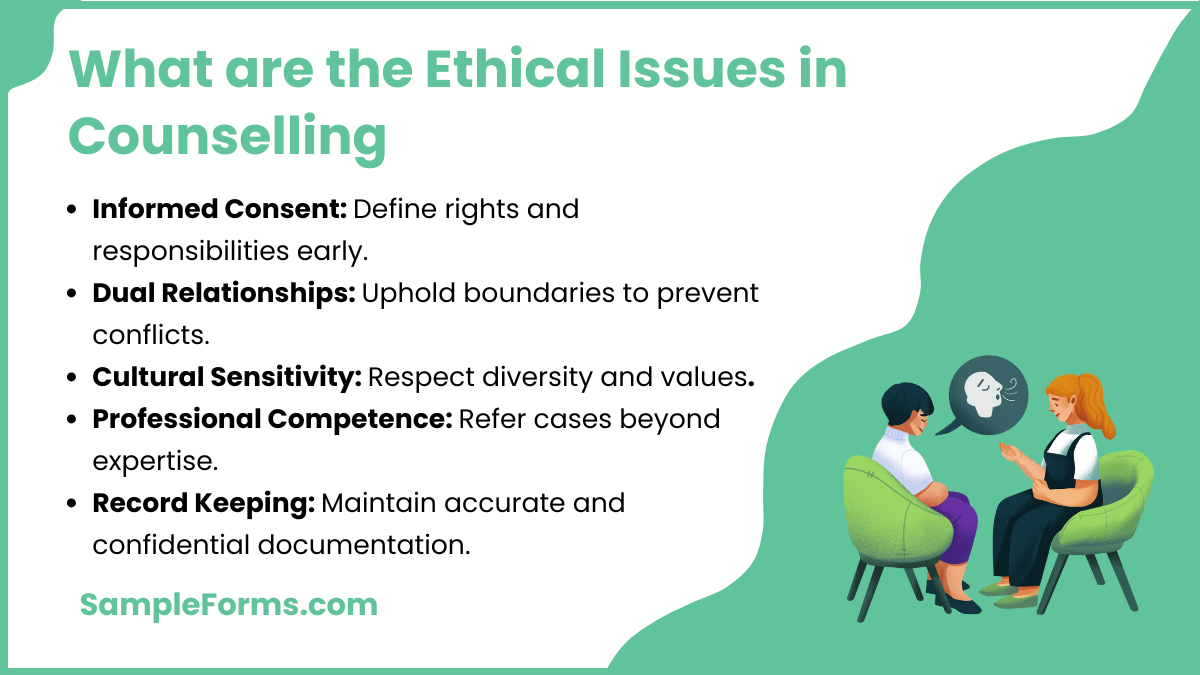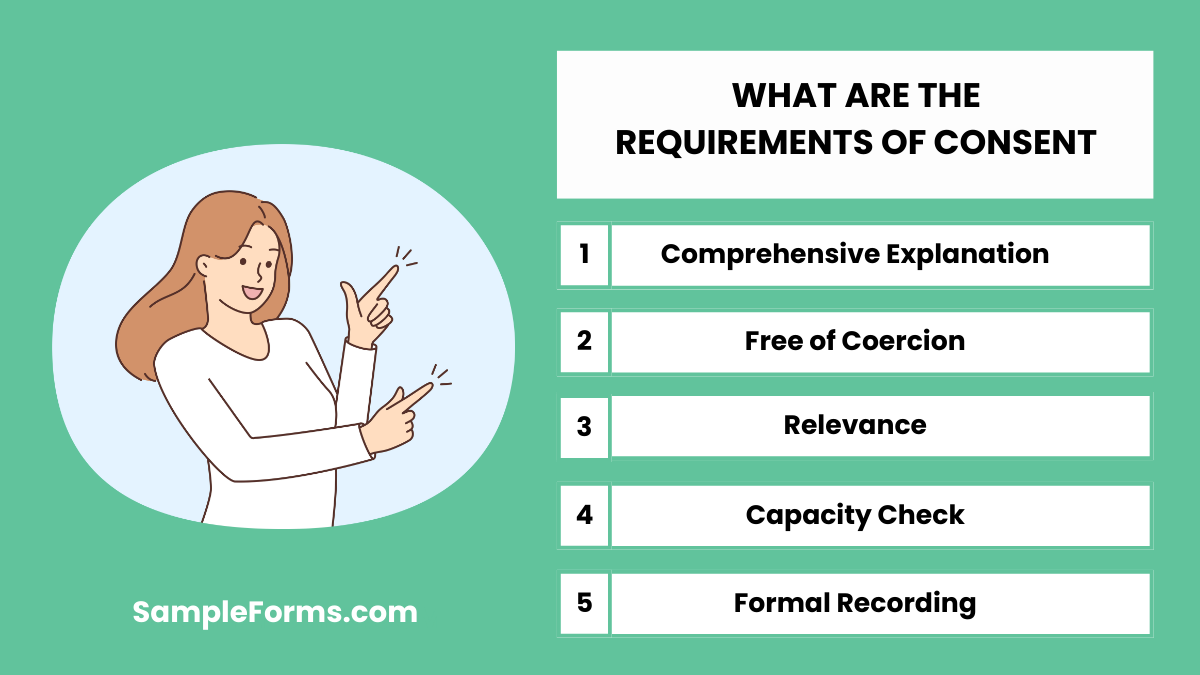A Consent Form and Counseling Form together establish the foundation for a professional therapeutic relationship, ensuring each party’s rights and responsibilities are clearly understood. By detailing the scope of therapy, confidentiality guidelines, and potential risks or benefits, these documents help foster trust and cooperation between counselor and client. In practice, they outline the process for securing informed agreement, providing essential clarity about session frequency, fees, and any third-party involvement, such as guardians or healthcare providers. Additionally, they highlight the ethical and legal obligations counselors must uphold, guarding client welfare and privacy. 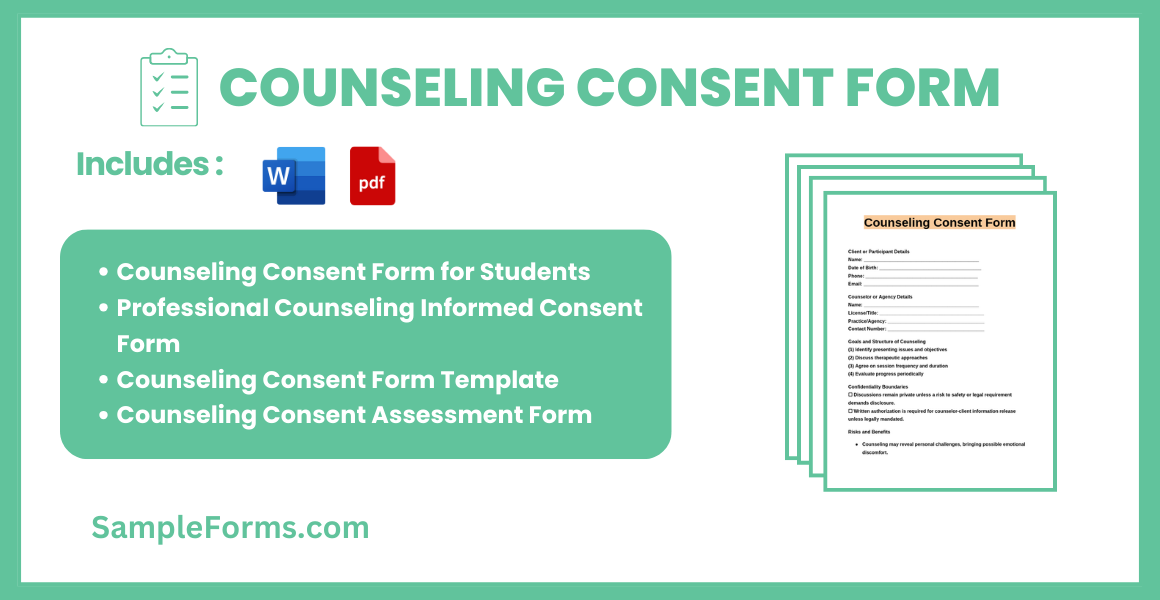
Download Counseling Consent Form Bundle
What is Counseling Consent Form?
A Counseling Consent Form is a written agreement between a therapist and a client that sets out the terms, boundaries, and expectations of the therapeutic relationship. It provides essential details about session scheduling, fees, confidentiality, and ethical standards, helping both parties understand their responsibilities and rights. By clarifying potential risks and benefits, it supports informed participation in therapy while complying with legal and professional guidelines.
Counseling Consent Format
Client Information
Name: __________________________
Date of Birth: __________________________
Contact Number: __________________________
Email Address: __________________________
Counselor Information
Counselor Name: __________________________
Credentials: __________________________
Contact Number: __________________________
Consent Details
- Purpose of Counseling:
- Scope of Counseling Services:
- Confidentiality Terms:
- Client Rights:
Acknowledgment
Client Name: __________________________
Signature: __________________________
Date: __________________________
Parent/Guardian Information (if applicable)
Name: __________________________
Relationship to Client: __________________________
Signature: __________________________
Date: __________________________
Counseling Consent Form for Students
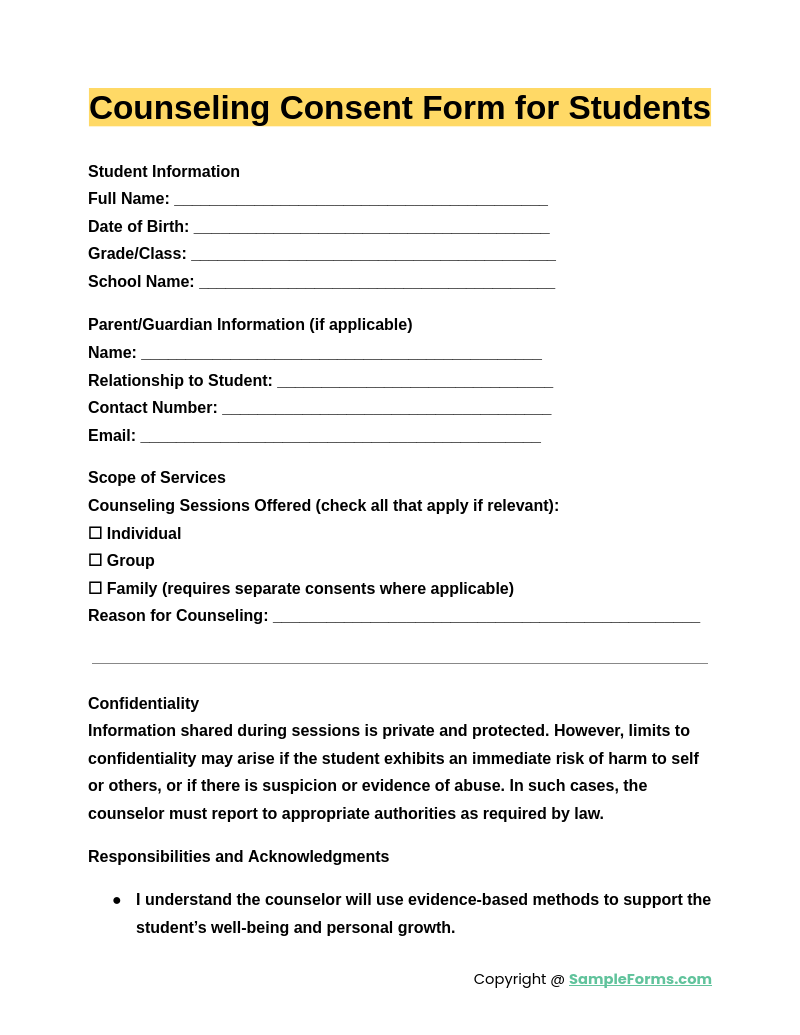
A Counseling Consent Form for students fosters a supportive environment, ensuring ethical guidelines and parental involvement if needed. Similar to a Student Consent Form, it outlines session objectives, confidentiality, and responsibilities, promoting trust, transparency, and clarity in student counseling interactions.
Professional Counseling Informed Consent Form
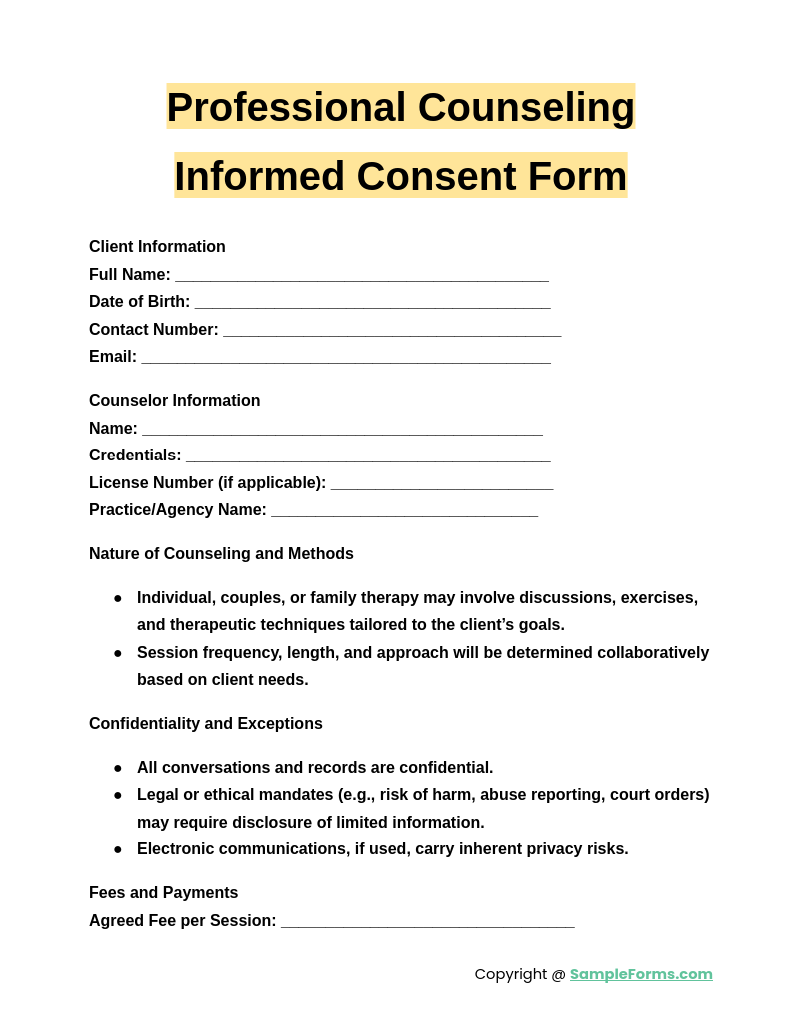
Used by licensed counselors, a Professional Counseling Informed Consent Form establishes accountability and sets clear expectations for therapeutic goals. Similar to a Research Informed Consent Form, it ensures participants fully comprehend procedures, potential benefits, and confidentiality before proceeding with counseling sessions.
Counseling Consent Form Template
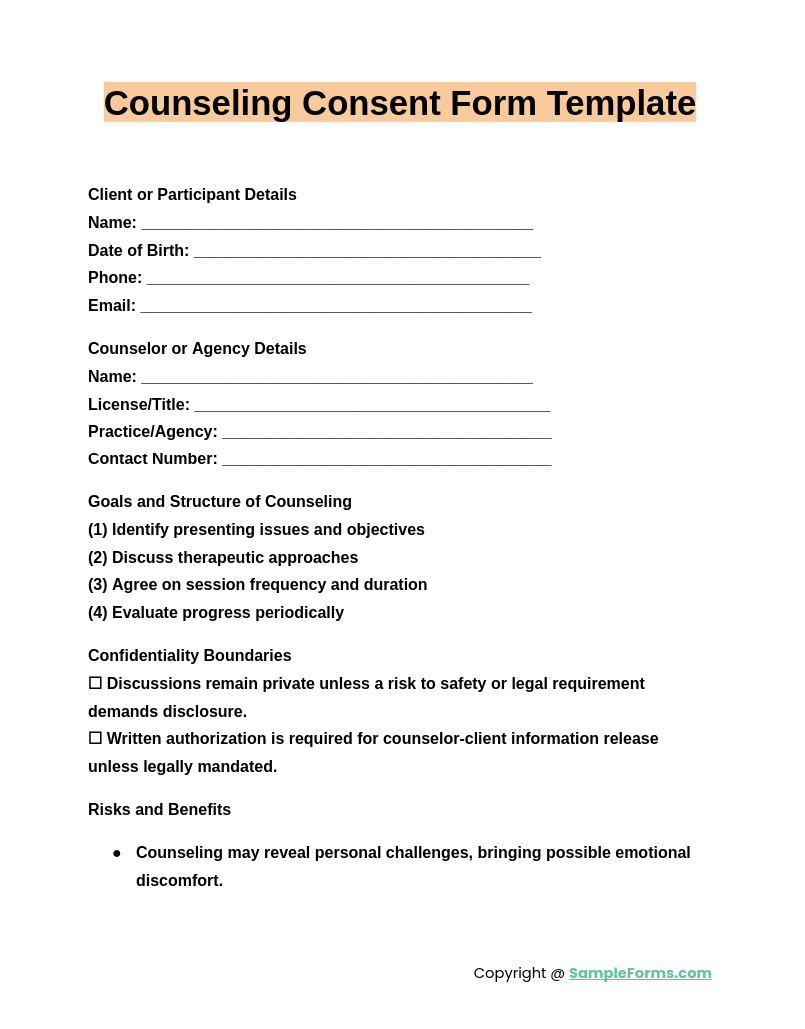
A Counseling Consent Form Template provides a standardized layout, detailing the counselor’s credentials, session structure, and confidentiality clauses. Similar to a Research Consent Form, it guides both parties through informed agreement while respecting privacy, legal requirements, and ethical practices.
Counseling Consent Assessment Form
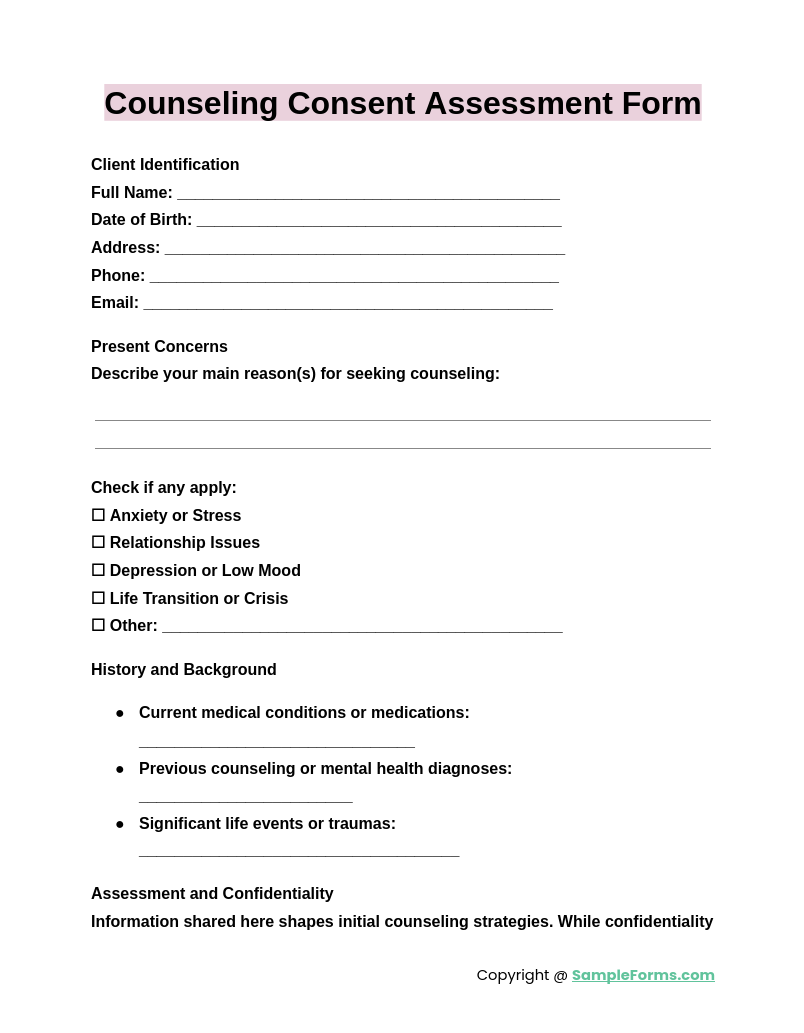
A Counseling Consent Assessment Form evaluates clients’ readiness for therapy, clarifying goals and potential risks. Similar to a Travel Consent Form, it protects all parties by documenting explicit permission, ensuring compliance with ethical standards, and encouraging responsible practice.
Browse More Counseling Consent Forms
Group Counseling Consent
School Counseling Consent
Professional Counseling Consent
Online Counseling Consent
Informed Consent Form
Counseling Client Consent
Counseling Parental Consent
Distance Counseling Consent
Sample Counseling Consent Form
What are the requirements of a consent form?
Accurate disclosure, voluntary agreement, and the capacity to understand are vital for establishing a valid, thorough consent form in counseling. Key points include:
- Full Disclosure: Explain all relevant information clearly.
- Voluntary Agreement: Ensure no coercion or undue pressure.
- Mental Capacity: Confirm the individual understands the implications.
- Proper Documentation: Similar to a Counseling Referral Form, maintain well-organized records for clarity and legality.
- Ongoing Consent: Allow withdrawal or revision at any point.
What are the limits of confidentiality in counseling?
Confidentiality ends where legal or safety concerns arise, protecting clients yet ensuring ethical reporting under specific circumstances and official requirements. Key points include:
- Legal Duty: Disclose threats, abuse, or criminal intentions when mandated.
- Imminent Harm: Breach confidentiality if serious risk to self or others exists.
- Court Orders: Comply with subpoenas for records or testimony.
- Child/Elder Protection: Notify authorities if neglect or abuse is suspected.
- Ethical Boundaries: Similar to a Career Counseling Form, handle sensitive information responsibly.
What are the ethical issues in counselling?
An ethical dilemma arises when counselor duties conflict, such as respecting confidentiality versus mandated reporting, requiring clear, strict ethical guidelines. Key points include:
- Informed Consent: Clarify rights and responsibilities from the start.
- Dual Relationships: Maintain professional boundaries to avoid conflicts.
- Cultural Sensitivity: Recognize diversity and respect individual values.
- Professional Competence: Refer complex cases if beyond expertise.
- Record Keeping: Similar to an Employee Counseling Form, ensure accuracy and confidentiality in documentation.
What are the requirements of consent?
Informed, voluntary, specific, given by a competent individual, and documented properly are the five essential components of legally valid consent. Key points include:
- Comprehensive Explanation: Clearly describe procedures, risks, and benefits.
- Free of Coercion: Verify an unpressured decision.
- Relevance: Tailor details to the proposed intervention or service.
- Capacity Check: Assess understanding and decision-making ability.
- Formal Recording: Similar to a School Counseling Form, finalize details in writing for reference.
What items should be included in an informed consent form?
An informed consent form should detail purpose, procedures, risks, benefits, alternatives, confidentiality, voluntary nature, contact information, and signatories’ responsibilities thoroughly. Key points include:
- Scope of Services: Outline what counseling or intervention entails.
- Risks and Benefits: Ensure transparency about potential outcomes.
- Confidentiality Limits: Clarify mandatory reporting obligations.
- Revocation Rights: Allow termination of agreement anytime.
- Documentation Standards: Keep clear records in line with ethical practices. You may also see our Video Consent Form
Can you write your own consent form?
You can create one independently, following legal and ethical guidelines. Similar to a Participant Consent Form, ensure clarity, confidentiality terms, and responsibilities. Always review local regulations or consult a professional before finalizing your personalized document.
Does informed consent have to be written in therapy?
Though typically encouraged, it doesn’t always require a strict written format. Similar to a Financial Consent Form, clarity is paramount. Therapists often maintain detailed documentation to confirm agreement, safeguarding client rights and ensuring professional accountability.
How do I make my own consent form?
Start by outlining components, such as purpose, scope, and participant rights. Much like a Sublease Consent Form, be precise about responsibilities. Finally, ensure it complies with legal standards and includes necessary signatures to validate consent.
How do you write a brief consent form?
Focus on brevity, ensuring core information like purpose, risks, and participation is clear. Similar to a Survey Consent Form, highlight data usage and privacy. Always verify completeness to protect all parties involved in the agreement.
What is a short form written consent?
A short form consent succinctly states key points, allowing participants to sign after an oral explanation. Similar to a Health Consent Form, it covers essential rights, responsibilities, and clarifies data usage without overwhelming legal jargon.
Who Cannot give informed consent?
Minors, mentally incapacitated individuals, or those under duress typically lack the legal capacity. Similar to a Counseling Feedback Form, clarity is crucial in determining if someone can comprehend and voluntarily agree to the documented terms.
How to write a consent form for therapy?
Outline session details, confidentiality, and potential risks. Similar to a Vaccine Consent Form confirm voluntary participation, ensure signatures, and address fees. Always mention mandated reporting limits to preserve ethical, legal obligations while fostering trust and clarity.
Can informed consent be given over the phone?
Yes, but practitioners should document details and confirm identity. Similar to a Performance Counseling Form, carefully note the conversation’s purpose, risks, and client agreement. Follow up with written confirmation to maintain ethical standards and transparency.
Can consent be written oral or implied?
Consent can be provided in writing, spoken agreement, or implied through actions. Similar to a Patient Counseling Form, clarity is essential. Documentation helps confirm intent and reduces legal risks throughout the therapeutic or procedural process.
What is the most common ethical violation in counseling?
Breaches of confidentiality frequently top ethical violations, damaging trust and client welfare. Similar to a Developmental Counseling Form, clear guidelines and diligent documentation help uphold standards, ensuring therapists maintain professional boundaries while respecting privacy obligations.
The Counseling Statement Form plays a vital role in clarifying roles, policies, and ethical standards for all involved in the therapeutic process. Whether you are drafting a Counseling Consent Form: Sample, Forms, Letters, Use for individuals, families, or specialized settings, clarity and thoroughness are essential. By explicitly detailing the nature of the counseling relationship, confidentiality guidelines, fee structures, and expectations, it reduces misunderstandings and fosters trust. This structured approach ensures that clients know their rights and that counselors maintain professional, ethical conduct. Ultimately, a well-prepared form sets the stage for transparent communication and mutual respect, forming the cornerstone of a positive counseling experience.
